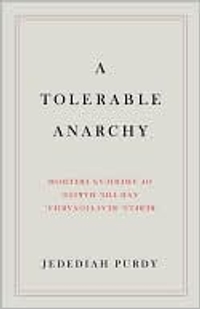No term in American political discourse elicits such uncomplicated reverence as the word “freedom”—and no concept is more complex and conflicted, argues this brilliant study. Drawing on everything from the writings of Frederick Douglass and Emerson to presidential inaugurals and Supreme Court opinions, Purdy (For Common Things
), who teaches law at Duke, surveys the ways in which the ideals of individual liberty, dignity and fulfillment have made and remade America. It's a vexed and protean legacy in his wide-ranging account, one that's given us both stirring liberation movements and misbegotten wars; a doctrine of laissez-faire economics and a welfare state that shields workers from the industrial economy; an unbridled thirst for personal self-actualization amid private utopias and a dread that our lives are incoherent, isolated and socially meaningless. In scintillating prose that's erudite but straightforward and packed with insights, Purdy offers both a searching critique of America's ideology of freedom and an affirmation of the “millions of small declarations of independence from hierarchy, constraint, and fear” it has inspired. The result is a tour de force of engaged political philosophy from one of America's most perceptive public intellectuals. (Mar. 5)


